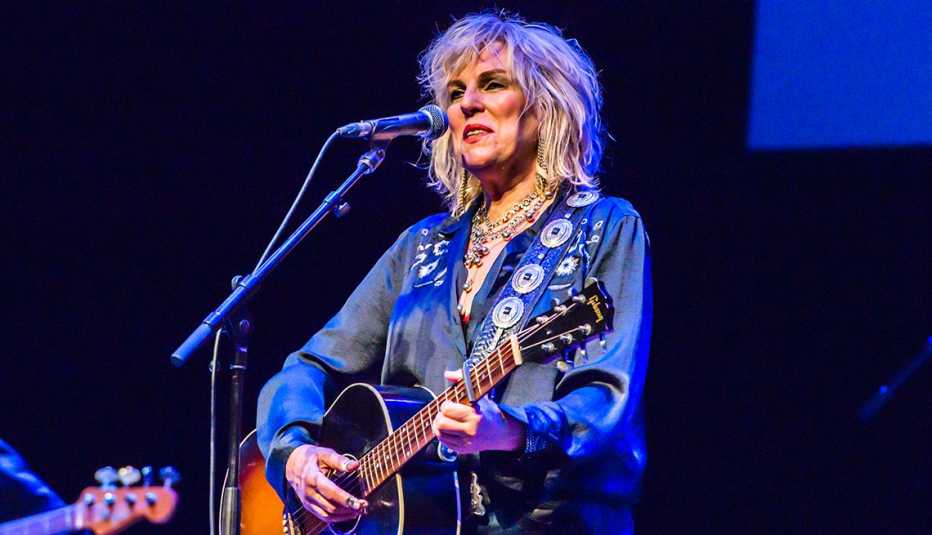AARP Hearing Center


Lucinda Williams hasn't been out of her house in East Nashville since March 9, relying on food delivery; subscription movies; exercise equipment; and the company of her husband and manager, Tom Overby, to keep her sane. She's also wrestling with a stark reality about staying in.
"This whole thing about people over 65 being the most vulnerable category, I'm like, ‘OK, I'm 67, so that puts me in that category,'” Williams says with a laugh on the phone. “I don't feel whatever it's supposed to feel like when you're 67."
Williams, a three-time Grammy winner who dresses in fringed leather jackets and high-heeled boots, and normally keeps a robust touring schedule, says she has been going in a straight line since she first started playing in bars and clubs four decades ago. “Things have changed around me, but I haven't changed."
And though she's a progressive thinker with such a powerful command of language and description that Time magazine once called her “America's best songwriter,” she admits she's somewhat taxed as to what to make of the current times.
She and Overby relocated to Tennessee from Los Angeles in February, only to have the March 3 tornado rip the roof off their porch and level homes in their neighborhood. Then came the coronavirus and imposed isolation.
“It's almost biblical. Now we need some locusts. That's the next thing.” Seriously, she adds, “I feel like Mother Earth is saying, ‘This destruction and lack of care has been going on too long.’ It's a little punishment: ‘You have to be locked in you room to think about what you've done.'”
Like everyone else, Williams is dealing with the attendant anxieties. Glued to the news, she has canceled her upcoming tour, of course, though she will likely livestream some special listening sessions. And as a confessed OCD germophobe, she worries about carry-out food packaging. “I've washed my hands so much, and even my right arm up to the elbow, that it's like I've got alligator skin."
But the worst part was learning on the same day in April that the coronavirus had taken friends John Prine and Hal Willner. Willner produced Williams’ 2007 album, West, which Vanity Fair called “the record of a lifetime — part Hank Williams, part Bob Dylan, part Keith Richards circa Exile on Main St.” She was so shocked at the loss that she couldn't really absorb it all.






























































More on entertainment
James Taylor Covers Timeless Songs in 'American Standard'
He riffs on kicking bad habits, the Beatles and the joy of chilling'We Are the World' Marks Milestone Anniversary
35 years after the original recording, the pop song is still raising money for famine reliefWhat to Know About Musicians On Call
Coronavirus put live performances on pause, so artists go digital